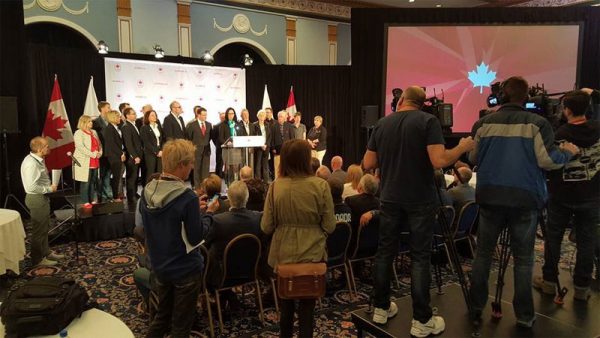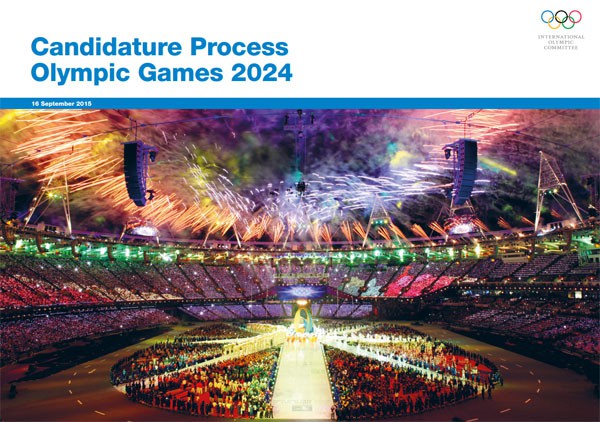
BidWeek, Reporting From Toronto, Canada – The Olympics in Tokyo and Sapporo have been canceled.
No, not for 2020 – but in 1940 when Japan’s Summer and Winter Games were called off amid World War II.
Similarly, Summer Games planned for Berlin in 1916 and London in 1944, as well as Winter Games in Italy’s Cortina d’Ampezzo in the same year were abandoned due to World War.
The Games that were reborn to celebrate human achievement and to help foster peace in the world instead fell victim to everything it aims to prevent: hate, persecution and fear.
No other Games have ever been canceled outright, or rescheduled.
It’s safe to say, then, that International Olympic Committee (IOC) and Tokyo 2020 Organizing Committee officials are now facing an unprecedented dilemma. It’s a world war for sure, but this time it’s everyone against an unaffected invisible and unpredictable foe.
Still IOC President Thomas Bach insisted Tuesday, and reiterated in an open letter to athletes Thursday, that all is well and the Games will go on.
“I encourage all athletes to prepare for the Games ‘full steam,’” he said while governments continue to take extraordinary measures to protect their people from the swarming COVID-19 coronavirus that has claimed more than 3,200 lives globally. Major sports events, including Olympic qualifiers, are now being canceled, postponed or contested in empty stadiums daily.

On Wednesday he claimed that neither the words ‘cancellation’ nor ‘postponement’ were mentioned during the two days of Executive Board meetings, and he refused to fuel the conversation with comments on the hypothetical.
Nobody knows what will happen between now and the scheduled July 24 Tokyo 2020 Opening Ceremony. There is evidence that the virus could ‘burn out’ as the summer months approach, or that the virus could continue to spread and wreak havoc on populations and economies.
The IOC can only be all-in until it’s not. The Games are on, or the World Health Organization (WHO) delivers a stern warning – and then they’re off. It’s binary for the IOC because there is almost no possibility that the Games could be postponed and rescheduled.
Hosting the Olympics is literally an Olympic undertaking. Moving the site or the dates of the Games would be akin to moving a house of cards from one table to another – in the wind.
Japanese officials have mulled delaying the Games until the winter, or even next year, claiming that the host city contract only stipulates that the Games be held in 2020. Bluntly, that’s impossible.
Purpose-built Olympic Village apartments for over 10,000 athletes and officials during the Games have been pre-sold for possession after the Games as scheduled. Thousands of volunteers have trained for months to spend their holidays helping Tokyo 2020 run smoothly – but they’ll go back to school, or work, or home overseas, after the summer. They’ll take the heartbeat of the Games with them.
Broadcasters who have invested billions of dollars to inundate the airwaves with three weeks of Olympic programming in the otherwise desolate summer television months, will be challenged to air that same programming against the full professional sports schedule that returns in the fall.

Sponsors who invested millions to buy categories, and have spent even more to activate them during specific periods, would see returns far below what were expected.
Temporary transport infrastructure that include airport fittings, Olympic road adjustments, bus fleet rentals and more may not be viable in later months. Multiple high-end venue leases that are taken for weeks over the Olympic and Paralympic Games may be impossible to rebook on short notice.
Hotel blocks reserved years in advance for the IOC, sport federations, sponsors, media and tour operators will not be available in the winter.
Any significant movement of the dates could only be accomplished with a significantly scaled-down event, and I can’t believe that the IOC would ever want to stage a ‘lesser Games.’
According to the Tokyo 2020 host city contract, the IOC can unilaterally cancel the Games “…if the IOC has reasonable grounds to believe, in its sole discretion, that the safety of the participants in the Games would be seriously threatened or jeopardized for any reason whatsoever.”
There is no mention of postponement in the contract.
Cancellation is the last thing that the IOC wants, but postponement is just not realistically possible. That’s why the IOC cannot even speculate about it.
And if it is a cancellation, there is no point mentioning it until it’s time to execute the suspension plans.
Then billions of dollars, millions of dreams, thousands of days of preparation – gone, just like that.
With the 2024 Games preparations already underway in Paris, and Los Angeles standing by for the 2028 edition, the earliest Tokyo could be granted a do-over would be 12 years from now in 2032.

These Games were dubbed the “recovery Games” and were pursued and developed to provide hope after a devastating 2011 earthquake and tsunami struck northern Japan. Suddenly losing the Games would deal another harsh blow to the already reeling nation.
Cancellation risks are often just forgotten clauses in contracts seen only by lawyers while cities are bidding for the Games. But the risks are real, and we shouldn’t be too surprised about the situation that has emerged in Japan.
On Wednesday, Bach reminded us that the IOC has faced threats to the Games in the past, and through calm perseverance they were able to proceed as scheduled.
Referring to the most recent PyeongChang 2018 Olympic Winter Games, Bach said “we had a situation where we did not know if we could have an Olympic Games on the Korean Peninsula at all.”
“We were talking about nuclear strikes, about missiles, about boycotts, about peace and war.”
He went on to mention the unfulfilled threat of Zika virus to the Rio 2016 Games and several multi-nation boycotts that took place in 1976, 1980 and 1984.
Bach also referred to the tragic events at the Munich 1972 Games when then IOC President Avery Brundage controversially declared “the Games must go on…” after terrorists murdered 11 Israeli athletes.
Maybe sometimes the Games can’t go on.
The Olympics celebrate human achievement; “Citius, Altius, Fortius” which translates to “Faster, Higher, Stronger” is its motto.
COVID-19 instead exposes our human physical frailty, and we can’t foster peace with the Coronavirus through sport.
Letter from IOC President Thomas Bach OLY to athletes.
Read here: https://t.co/2ty3M65Tfy pic.twitter.com/RhlOTvhDIj
— Athlete365 (@Athlete365) March 5, 2020
The IOC is completely out of its wheelhouse with this threat, and that’s why President Bach was happy Wednesday to defer any of the hard decisions to health officials including the WHO.
“Of course we are a responsible organisation, this is why we have this joint taskforce which is having regular meetings and we are addressing any issues which may arise,” he said.
“But we are not speculating on any kind of future developments.”
But there needs to be a positive future development to get this train back on the rails. Schools across Japan last week were ordered closed for a month in order to prevent the spread of the virus. If the Games were set to be held this month, or next – presumably they would have already been canceled.
There is a fighting chance that within the next 2 to 3 months the virus and associated fears will fade into the warming Spring. But unless that happens sooner than later and before organizers, workers, volunteers and athletes start to gather in Tokyo weeks ahead of the Opening Ceremony – it could be Games over.


